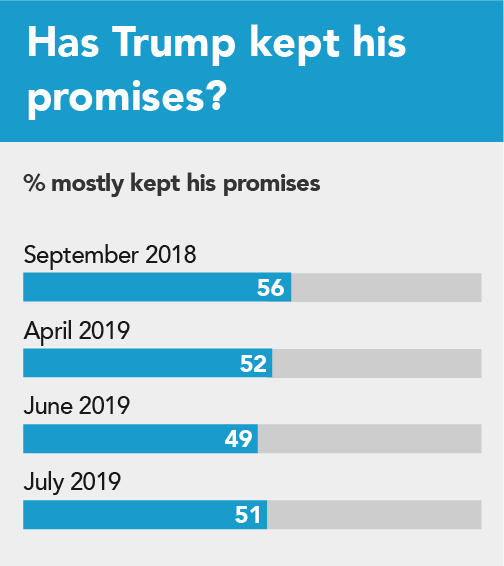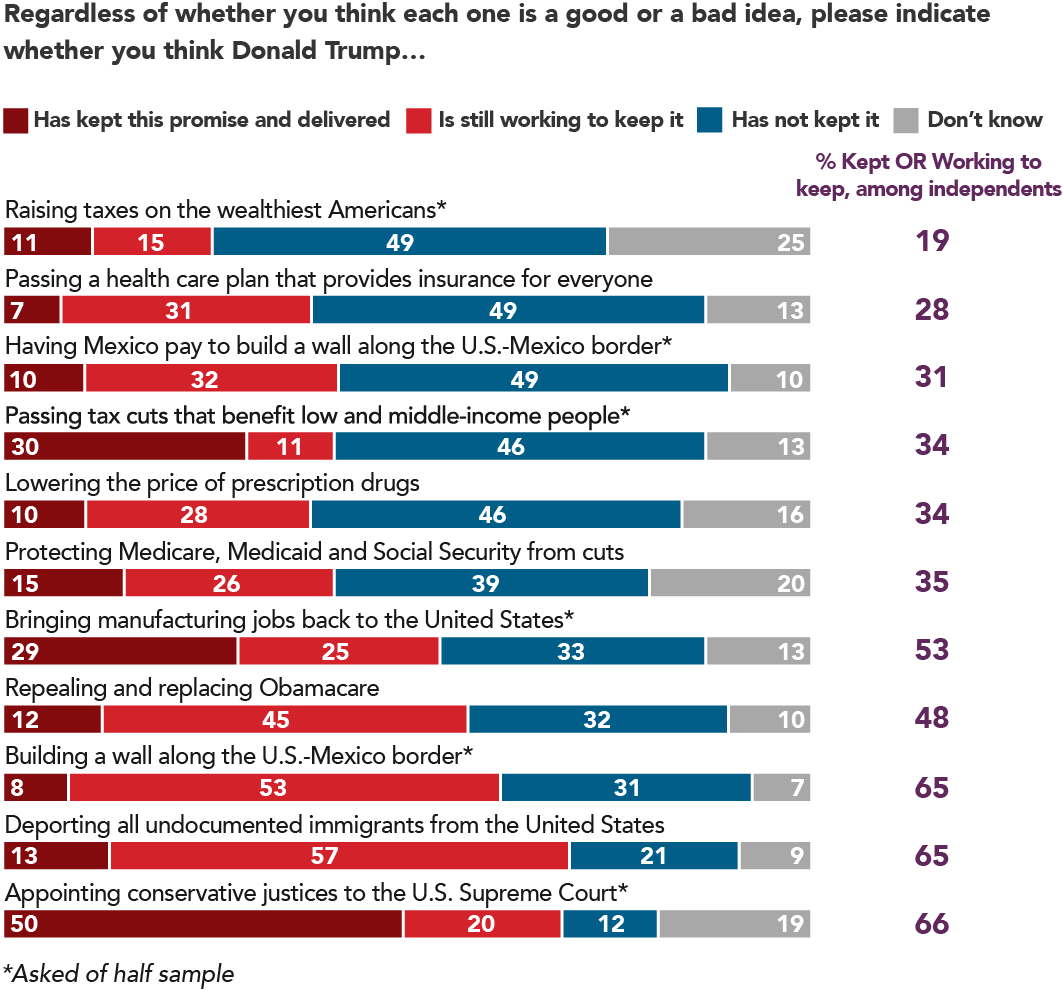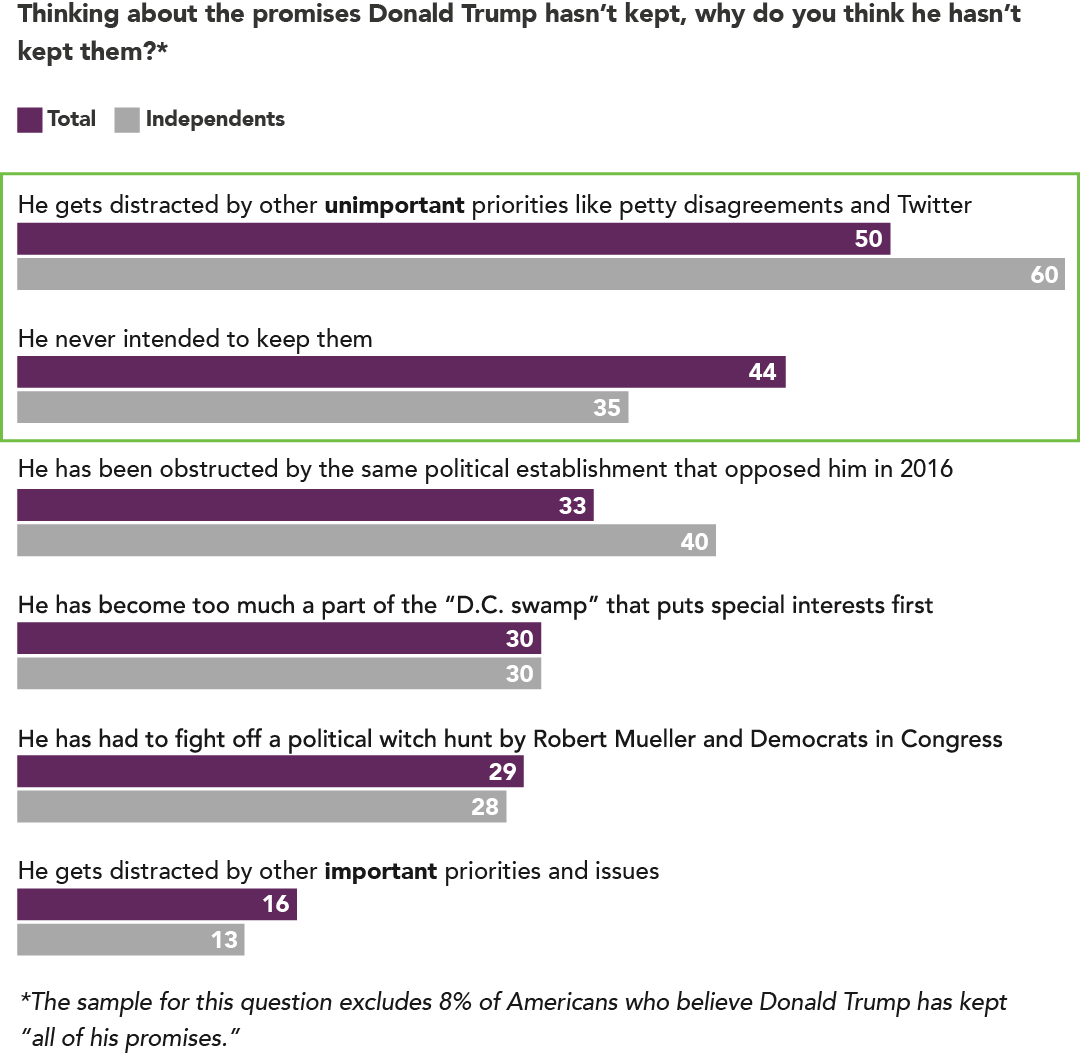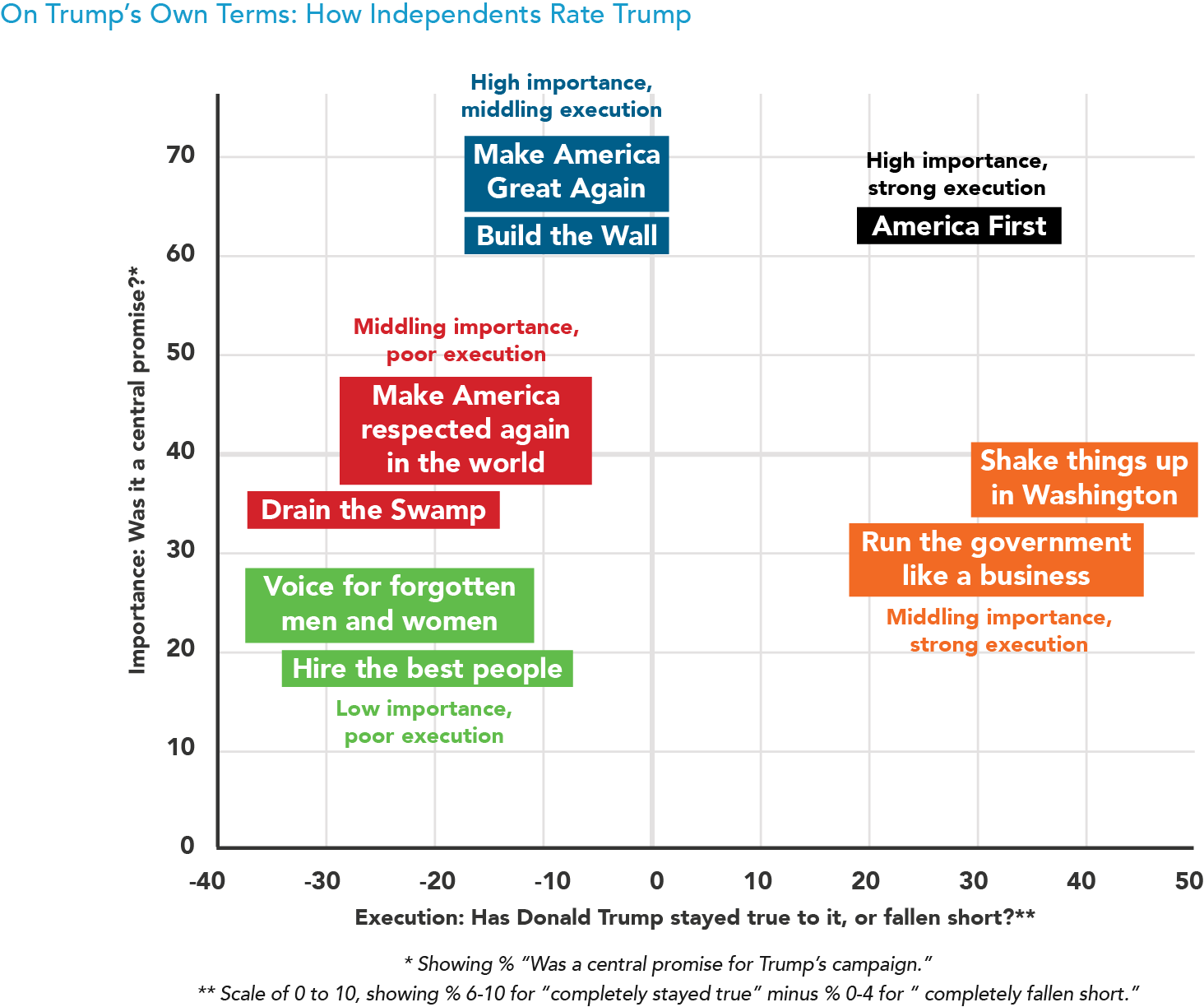Every month, we pick a few topics for exploration. The topics we select aren’t meant to cover every issue area facing the progressive community, but rather to give actionable advice on how to talk about key issue areas. We’ll be sharing our findings throughout the month, and in this volume we focus on:
Trump has said a lot of things about what he’d like to do as president. Is he living up to the expectations he set out?
Whether it’s protecting Medicare, raising taxes for the wealthiest Americans, or giving health care to everyone, there are several areas where Americans feel the president has not lived up to his own hype.
Many Americans believe Donald Trump’s actions do not match his past statements about taxes, entitlements, and health care.
Since last year, Navigator has been tracking public perception of whether Donald Trump has “mostly kept” or “mostly broken” the promises he made. In September, the results showed favorable numbers for the President: 56% said he had mostly kept his promises, while 44% said he had mostly not kept them. However, more re- cent tracking shows the public to be more divided on the subject. Forty-nine percent of Americans now say Donald Trump has “mostly broken” the promises he made, while 51% say he has mostly kept them.
The latest Navigator survey takes a closer look at the public’s perception of Trump’s specific commitments.

Public perception: Trump is working on “the Wall,” not health care for all.
A public figure’s commitment to a policy proposal can be judged in a few ways – as something they have neglected, as something they have delivered, or as “a work in progress.” Navigator asked Americans to categorize various commitments Trump has made into one of these buckets.
As it turns out, many Americans don’t think the president is delivering on some commitments listed that relate directly to their lives, particularly when it comes to health care. Just 38% of Americans believe Donald Trump has kept or is even working to keep his promise to pass health care legislation that “provides insurance for everyone”; just 38% say the same for “lowering the price of prescription drugs”; and just 41% say the same for “protecting Medicare, Medicaid and Social Security from cuts” (and as Navigator recently found, 83% of Americans think “protecting Medicare” is a good idea to begin with).
There are at least two issues where a clear majority of the public see the president keeping to his word. First “appointing conservative justices to the Supreme Court,” where 50% think the president has already delivered and another 20% say he is still working on it. Then there is “deporting all undocumented immigrants from the country” – in this case, just 13% say the president has delivered but 57% do believe he is working on it.

Americans worry that President Trump is getting distracted – or was dishonest from the start.
Some commentators have argued Trump deliberately uses manufactured controversies and outrageous tweets to distract from his administration’s deeper problems.
But the latest Navigator reveals Americans think it’s the president himself who is distracted: asked why Donald Trump hasn’t kept all of his promises, the top response is that he “gets distracted by other unimportant priorities like petty disagreements and Twitter.” This is by far the best-testing response among independents.
Overall, the second most common explanation is that Trump “never intended to keep” the commitments he made.

Navigator Research conducted a survey experiment: half of respondents were shown a statement about a Trump administration policy, and half were shown the same statement, with an added introduction arguing that the Trump administration policy went against a previous commitment made by the president. Both groups were asked how troubling they found the statement. Because the groups were randomly selected and were politically balanced, a comparison of the responses can help reveal whether the differences in the statements caused any more or less concern.
As it turned out, the differences were not statistically significant: when it comes to Medicare and taxes, most Americans are concerned about what the president is doing – and many are deeply concerned. There appear to be few Americans who are concerned just because his actions have contradicted his past statements.
Americans say he has fallen short on some rhetorical promises – but some are far more important than others.
Many of Trump’s statements have referred to specific policies but he often makes more general, thematic statements about what he wants to do for the American people. Having Americans assess his ability to stay true to these phrases and slogans provides a window into how Americans rate his presidency on his own terms, beyond detailed policy.
Navigator took some of these slogans and asked two questions to two separate halves of respondents:
one half was asked if Trump had stayed true to each statement or if he has fallen short. The other half was asked if each promise was central, very important but not central, or if it was not very important.
Looking specifically at independents, who are most likely to give a non-partisan read on the president’s performance, the chart below shows Trump’s slogans in five groupings:
A. big, central commitments that the president has stayed true to;
B. big, central commitments where the president’s performance is mixed;
C. somewhat important commitments that the president has stayed true to;
D. somewhat important commitments where the president has fallen short;
E. less important commitments where the president has fallen short.

About The Study
Global Strategy Group conducted a public opinion survey among a sample of 1,003 registered voters between July 11-14, 2019. 119 additional interviews were conducted among political independents with no partisan lean. The survey was conducted online, recruiting respondents from multiple opt-in online panel vendors. Respondents were verified against a voter file and special care was taken to ensure the demographic composition of our sample matched that of the national registered voter population across a variety of demographic variables.

